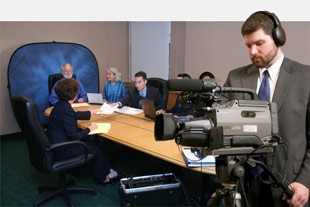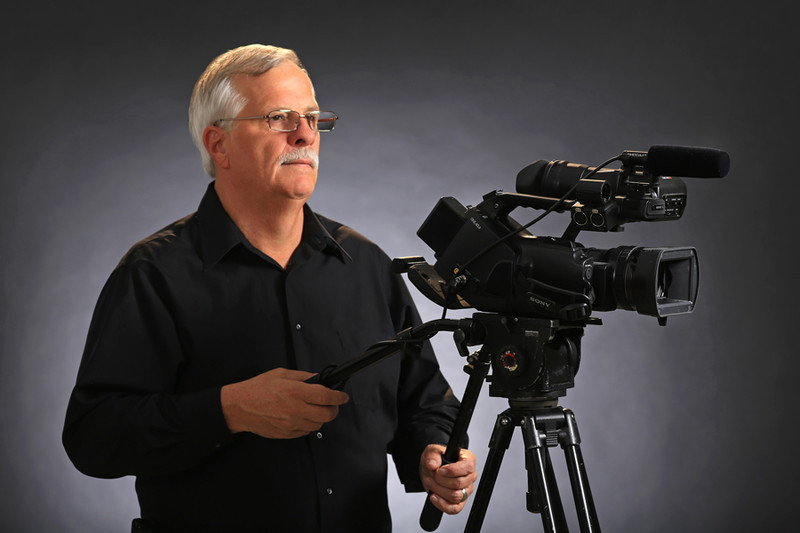Precision-Based Legal Videography for Seamless Evidence Filming.
Precision-Based Legal Videography for Seamless Evidence Filming.
Blog Article
The Function of Lawful Videography in Depositions and Tests
Lawful videography has actually become an essential device in both depositions and trials, supplying a complex strategy to documenting witness testimonies. By recording not only the spoken word however additionally the nuances of non-verbal communication, this medium improves the trustworthiness of testimonies and maintains essential evidence for future proceedings. As attorneys significantly recognize its worth, it prompts a much deeper evaluation of exactly how these visual documents can affect juror perceptions and trial end results. What ramifications might these growths hold for the future of legal practice?
Significance of Lawful Videography
Legal videography plays a crucial duty in the paperwork and discussion of depositions and trials. This customized area combines technological abilities with legal knowledge to produce a reputable record of process that can dramatically influence situation results. The visual element of legal videography improves the understanding of witness testimony, permitting jurors and judges to observe not only the spoken words yet additionally the temperament, emotions, and body language of the witnesses.

The significance of lawful videography prolongs beyond the court; it also plays an essential function in maintaining evidence for future referral, whether for charms or further lawsuit. Its integration right into the legal procedure is necessary for guaranteeing a fair and exact depiction of the facts, inevitably contributing to the search of justice.

Process of Legal Videography
While capturing the subtleties of depositions and trials, the process of lawful videography includes numerous essential steps that ensure high-grade, exact recordings. An expert legal videographer prepares by assessing the case products and comprehending the details needs of the deposition or test. This prep work consists of familiarizing themselves with the participants and the context, which aids in capturing important information.
On the day of the recording, the videographer establishes the needed tools, which typically consists of high-definition cams, microphones, and appropriate illumination. Making sure ideal angles and sound high quality is important, as it directly affects the effectiveness of the recording. The videographer connects with lawyers and participants to develop procedures, guaranteeing that everyone understands the recording procedure.
Throughout the deposition or test, the videographer thoroughly tape-records the proceedings, paying attention to both spoken and non-verbal hints. legal videography. This includes recording the demeanor and responses of witnesses and lawyers. After the session wraps up, the videographer may modify the video footage for clarity and conformity with lawful requirements, producing an end product that accurately mirrors the process for future recommendation and use in lawful contexts
Benefits in Depositions
The incorporation of videography in depositions supplies many advantages that boost the general process of collecting evidence. One key benefit is the ability to record witness statements with click this visual and acoustic fidelity, giving a much more accurate depiction of the witness's behavior, tone, and body language. This multidimensional technique allows lawyers and juries to examine trustworthiness more properly than conventional written records alone.
Additionally, videographed depositions function as a powerful device for preserving statement. Should a witness ended up being inaccessible for trial, their taped deposition can be played in court, ensuring that their proof remains available and pertinent. This aspect dramatically decreases the threat of losing important details that could affect instance results.
In addition, using lawful videography advertises much better prep work for attorneys. Examining video clip footage permits lawful groups to examine and improve their approaches, identifying strengths and weak points in their instances. This primary benefit can result in more engaging discussions in court.
Finally, videography improves the overall professionalism and trust of the deposition procedure, instilling self-confidence in clients regarding the thoroughness of their legal depiction. By leveraging modern technology, legal professionals can considerably enhance the performance of depositions.
Influence On Tests
In many trials, the combination of videography can substantially affect the discussion of proof and the jury's assumption. Legal videography captures witness testimonies and critical proof in a dynamic format, allowing jurors to engage with the product on numerous degrees. This aesthetic part improves the storytelling facet of a trial, offering context and emotional vibration that typical text-based proof may do not have.
Furthermore, video recordings can act as powerful devices for impeachment throughout cross-examination. When discrepancies arise in between a witness's previous statements and their courtroom testament, video evidence supplies an unbiased referral that can sway jurors' opinions. This immediacy and quality can boost the integrity of a celebration's narrative while all at once threatening opposing disagreements.
Additionally, using videography can help improve complicated info, making it a lot more easily accessible to jurors that might have a hard time to grasp complex details offered entirely via verbal testament. By integrating visuals with acoustic info, lawful videography can improve retention and understanding, inevitably influencing the court's decision-making process. The influence of videography in trials prolongs past simple visual appeals; it plays a critical role in forming the lawful landscape and end results.
Future Trends in Legal Videography
As we look toward the future of legal videography, a number of arising trends guarantee to improve its role within the court. One substantial trend is the integration of fabricated intelligence (AI) in video analysis and editing and enhancing - legal videography. AI can improve the process of determining vital moments in tape-recorded depositions, permitting lawyers to quickly access appropriate material, therefore boosting efficiency in Visit Website situation preparation
Furthermore, the surge of online truth (VR) and increased fact (AR) modern technologies is expected to change how jurors experience evidence. By Website immersing jurors in a simulated environment, these technologies can give a more profound understanding of complex scenarios, resulting in more informed deliberations.

Additionally, the boosting need for remote depositions, sped up by the COVID-19 pandemic, will likely continue. Legal videographers will require to adjust to new software application and platforms to guarantee top quality recordings in virtual settings.
Last but not least, the expanding emphasis on data security will certainly demand stricter protocols for storing and sharing video clip evidence. As the legal landscape evolves, lawful videographers need to stay abreast of these fads to keep their significance and effectiveness in the judicial procedure.

Verdict
In recap, legal videography serves a critical function in the judicial process, improving the honesty of depositions and tests. As technology continues to develop, lawful videography is positioned to more change its role within the legal landscape.
Report this page